The first time I traveled to Poland I was 11 years old. It was about a year and a half after communism had fallen and my aunt, who my mother had not seen in fifteen years, was getting married. My brothers and I were taught no Polish growing up, but by the time we landed in Warsaw we could each repeat a token phrase. Mine was to be delivered to my 92-year-old blue-eyed great-grandmother: “My mother says I have your eyes.” More useful would have been: “Please don’t let us die.” The trip nearly killed all of us in different ways. My brothers and I, children of the antiseptic suburbs of the antiseptic ’80s, were not ready for milk sloshed straight from the cow or water cranked straight from the well; we spent most of the trip trying not to soil ourselves, then, when this proved impossible, trying not to soil ourselves when we had company. My father fell ill with a fever that peaked to 105 the night of the wedding and rendered him unable to defend himself from the groomsmen who pulled him from bed for vodka and dancing. One might think my mother would have enjoyed some sort of home-field advantage, but she in fact came closest to death, suffering a third-degree burn on her leg after mishandling a tub of boiling laundry water, then contracting hepatitis C from the single needle the local clinic used to treat everyone that came in that day.
Elevated above my memories of suffering are those of watching my uncle fish the oxbows of the Wisła River on calm evenings after the wedding festivities had ended. He was tall and tremendously mustached and, despite being thin as a rail, had hands so chronically swollen from farm work he often broke his cigarettes as he pulled them from the pack. My mother had spoken of his fishing prowess for years, and as a result my fish-obsessed brothers and I regarded his every action with great reverence. While he purportedly had some actual rods stashed away somewhere, his preferred method of fishing was gillnetting, which he practiced from a homemade wooden boat that took on water just slowly enough to allow him a single out-and-back expedition. He would row out across the black water to lay his net, then back off and smoke a few cigarettes before pounding an oar violently on the surface of the water. The percussion sent any fish in the vicinity fleeing straight into his trap: pike, chubs, zander, carp. My brother and I would help carry the fish home—everything was kept, no matter the species or size—then watch our uncle cut off their heads and thumb out their guts and halo their bodies with loops of onion; or pack their cavities tight with marjoram, onions, and salt; or put them to sleep in the oven on a bed of red peppers and fresh cream. A subsistence angler through and through, he had no use for a fishing license, and had you given him something as inefficient for the taking of fish as a fly rod, he would have traded it for vodka and cigarettes. As such I can’t help but wonder what he would think of me now, back in Poland twenty years later, about to spend quite a bit of money to get licensed to fly-fish just for fun.
“Fishing license.” Driving past a coal plant toward what my American brain wants to call housing projects, I’m beginning to wonder if license is the right word. The documentation Arek has instructed me to bring along—Polish passport, American passport, notarized birth certificate, four black-and-white 2x2s that make me look like a young Stalin—suggests something a good deal more serious than the flimsy scrap of plastic that grants me access to any body of water in the state of Michigan. And because I’m still missing the final required document—proof of Polish address—we have to exploit a connection in the form of Aga’s father’s friend, who serves as president of a local fishing organization. And so my entrée into Polish fly fishing begins in a Soviet-era housing complex and the presidential chambers of the Lower Silesia Catfishing Club.
“Do you see the entrance?” Arek says after we circle the complex twice.
A whistle shrills from the back of a loading area, and out from between a dumpster and a stack of broken pallets emerges a bald, hulking individual who introduces himself as Ryszard. There’s little presidential about him, unless you count his bandaged head wound as evidence of some poorly sized crown. He leads us to a dank bunker office lit by a single bulb hanging from an extension cord. There are bobbers in the pen holders, lead pyramid sinkers for paperweights, a klatch of spinning rods in the corner, old throw-nets oozing from the ceiling. The only things without immediate piscatorial application are a plate of browning sugar cubes and two life-size posters on either wall, one a calendar featuring a thoroughly siliconized brunette in a black bikini stating, “We are going farther,” the other a heavily airbrushed Bruce Willis standing in a field of rye wearing a face no American would recognize—a soft smile like he’s about to invite you in for homemade eclairs. He’s in that field hawking a vodka named for the 16th-century Polish king who saved Europe from the Ottomans. The text at the bottom of the poster is in English, and I can’t help but think that someone on the design team outsourced the translation to Google: “It’s the best vodka I’m familiar with.”
The already ruesome getting-legal process is further complicated by the fact that Ryszard has only ever processed licenses for what are referred to in Poland as “lowland rivers”—his is, after all, a catfishing club. Since high mountain streams, not to mention fly fishing itself, are subject to different laws that are completely foreign to him, we have to sit through endless phone calls, web searches, and consultations with dusty reference tomes. Stamps are needed from this Ziploc bag, holographic stickers from another. Nearly every page in one of the booklets I will have to carry requires the affirmation of a violently taloned Polish eagle, inked, blotted, and blown on with great care. Regular presidential cigarette breaks are required, and during one of these Ryszard asks, angler to angler, what it’s like to catch a fish on a fly rod.
Being the only fly angler in a family of anglers, I have a lot of experience with this question, along with the suspicion that informs it. “It feels amazing,” I reply, and offer to take him out sometime. He accedes, but insists we first go after the Wels catfish of the Oder River, punctuating the invitation by making a chopping motion against his thigh, like he’s miming the amputation of his leg. It takes me a minute to understand what he’s doing, but then I remember it’s what my Polish grandfather used to do when talking about the pike he had caught. Whereas an American will hold his hands out in front of you to denote the size of a fish, a Pole shows you how far the fish would stretch up his leg if its tail were placed at his toe. To his offer I reply, “Bardzo podoba mi się”—I’d love to—and mean it, the Wels being one of the fantasy fish of my teenage years. I wonder how one would go about taking one on a fly.
Back on the road, we celebrate my newborn legality with beer—in Poland it’s legal for anyone but the driver to drink themselves into any state of intoxication the situation requires. “Curl your lips over your teeth so they don’t chip,” Arek advises. After an hour we stop to pee near a bridge over a small stream flowing through potato fields. Arek explains that in the 1980s the streams of this region ran a different color every day of the week, depending on which chemical dye the Soviet textile factories were using. “Even this color,” he says, lifting a few strands of Aga’s fire-engine-red hair. Each waterway was an ecological dead zone entirely void of life—home to not a single aquatic insect, not a single fish.

“But look now,” he says. In the soft dusk a mayfly hatch is underway, and the river seethes with the fleshy porpoises of feeding fish. “Grayling,” Arek smiles. “The big one under that branch.” As a result of various grassroots conservation initiatives, many of them advanced by the small population of fly anglers in the country, the rivers are slowly healing. There is even a twenty-year plan to restore a reproducing population of Atlantic salmon to Poland’s rivers, fish that haven’t seen their native spawning grounds in the mountainous south of the country in hundreds of years. Arek’s eyes water a little as he tells me all this.
“You are here at the right time,” he says.
The sight of sipping grayling stays with me as we drink more beer and gain on the darkening mountains. A crescent moon has cleared the treetops when we pull into the farmyard of Arek’s uncle, a chronophobic bachelor who keeps geese. I fall asleep on an air mattress in a room with forty clocks. None tick in unison. All count down one thing: Tomorrow we fish.
"Cloud, castle, creek" is an excerpt from the new book Calling After Water by Dave Karczynski, available now from DaveKarczynski.com and wherever books are sold.

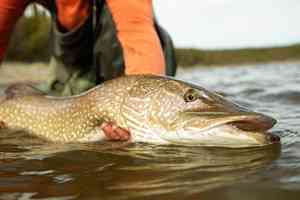
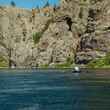
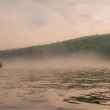
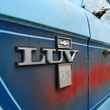
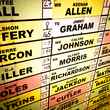
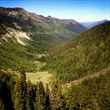
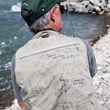
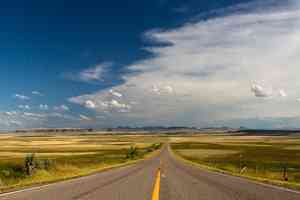


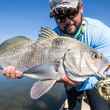
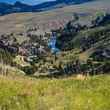
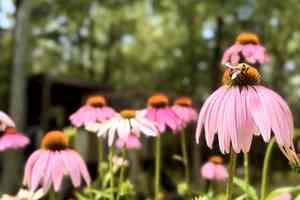
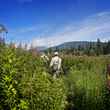
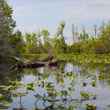
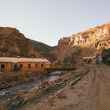
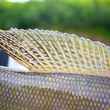



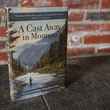
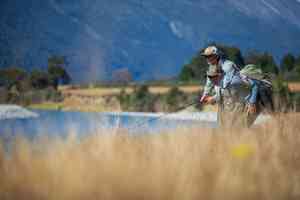
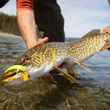
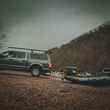
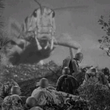
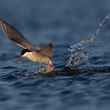
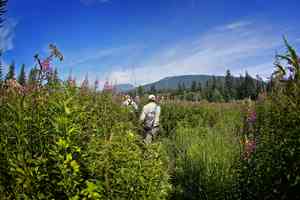
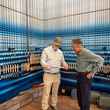

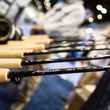
Comments